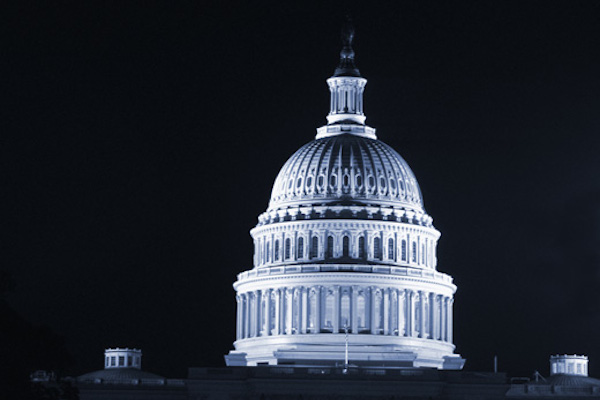When the No Child Left Behind Act (NCLB) was signed into law in 2002, it was intended to last only until 2007, when lawmakers would revisit and improve the law. Instead, our country’s lawmakers allowed the bill to expire, forcing states to continue to abide by it until another law replaces it (or, after 2011, seek a conditional waiver from the Obama Administration).
Finally, with both sides of the aisle dissatisfied with NCLB, Congress has decided to take note of the lessons learned in the past 13 years and begin debates to replace the law. Meaningful changes in the law are far from a slam dunk; those on the left are calling for reforms as progressive as universal pre-kindergarten and those on the right wish to see more decision-making power reside in the states. If an agreement is to be struck, it will surely come at the end of impassioned and tumultuous debate.
The bill that has been brought to the Senate floor is sponsored by Lamar Alexander (R-TN) and Patty Murray (D-WA) — both of the Senate Committee on Health, Education, Labor and Pensions, where the bill passed unanimously in April. The proposed bill calls for the continued use of mandated math and reading tests, but would allow states to decide what to do with their results. Furthermore, in direct response to the debate over Common Core, the bill would prohibit the federal government from requiring, or even encouraging, a nationwide set of academic standards.
The House of Representatives is set to debate their own version of the bill, sponsored by John Kline (R-MN), which includes giving states control over school accountability and a controversial school choice provision. This bill was set to be voted upon in February, but that vote was withdrawn because there was not enough support, even within the Republican majority, for it to pass — and the White House announced that it would be vetoed, should it reach the President.
Here’s a primer on some of the key issues set to unfold during the debate:
Veto Power. The White House has announced that it does not support either the House or Senate bills in their current form due to a lack of accountability. While they haven’t said that they would veto the Senate’s bill, they have made it clear that they hope to see improvements. Namely, they would like to see a plan for failing schools. As Secretary of Education Arne Duncan, pointed out, “To simply label a school as failing, that doesn’t change a kid’s life.”
It’s a civil rights issue. Although a school and its students are far more than a number, testing has allowed for a quantitative way to highlight the differences in quality of our country’s schools and has been particularly effective in bringing the black/white achievement gap out of the shadows. When the President and his Secretary of Education refer to accountability, they are, in many ways, referring to the federal government’s responsibility to figure out which of its citizens it is failing and fix it.
Testing, testing, and, oh wait, more testing. The country’s largest teacher’s union, The National Education Association, has long been calling for the elimination or severe reduction of standardized tests. Banking on a renewed anti-testing fervor stemming from frustration with the Common Core, their voice is sure to be heard in this debate. While testing is disruptive, wildly unpopular, and known to distract school systems from the true mission of educating children, another viable accountability option would have to be brought forward to see the elimination of testing. In the meantime, there’s a real chance the testing could be limited and the scores used in a different way.
Wish lists. It is impossible to overstate the importance of public education, and everyone wants to leave their mark on the issue. Bob Casey (D-PA) seeks to provide universal pre-kindergarten and believes he can fund it by closing a corporate loophole allowing US companies to move part of their business overseas in order to become foreign corporations for tax purposes. Pat Toomey (R-PA) and Joe Manchin (D-W.Va) will ask for more detailed background checks of all school personnel. Other lawmakers are sure to add their opinions and addendums to the bill.
In the words of John F Kennedy, “Our progress as a nation can be no swifter than our progress in education. The human mind is our fundamental resource.” Nothing short of the fate of our country rests upon the education we provide to its children. Let us insist that our lawmakers take this opportunity to make sound, effective, and significant improvements to our education system.







 This is a yet another demonstration that Federal abuses of the Native American people are still ongoing (and Native interests and voices are still callously disregarded), rather than such treatment being some relic of a harsh but distant past. Interior Secretary Jewell called the provision “profoundly disappointing.”
This is a yet another demonstration that Federal abuses of the Native American people are still ongoing (and Native interests and voices are still callously disregarded), rather than such treatment being some relic of a harsh but distant past. Interior Secretary Jewell called the provision “profoundly disappointing.”